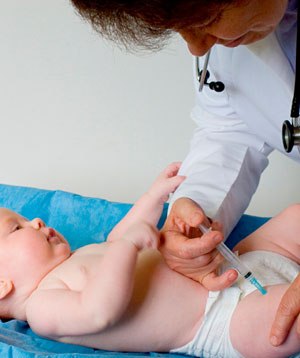When thinking about the infant immunization schedule, you should know that the role of immunization is to protect the child against serious conditions and diseases. These include tetanus, polio, measles, seasonal flu and mumps. Some people consider this the most important part of childcare.
How to schedule for infant immunization process
 Immunizations refer to vaccines that are made of killed or weakened forms of the virus or bacteria that causes certain kinds of illnesses. If these are taken orally or injected, the immune system responds to it by an attack, making the body produce antibodies against the given bacteria or virus.
Immunizations refer to vaccines that are made of killed or weakened forms of the virus or bacteria that causes certain kinds of illnesses. If these are taken orally or injected, the immune system responds to it by an attack, making the body produce antibodies against the given bacteria or virus.
The infant vaccines’ schedule is important because once the body produces antibodies it will be able to fight the real disease. This means that if there is an outbreak of mumps in your area, the children who got a shot against it will be a lot less likely to be affected.
New entries
During each year, the authorities come up with a new infant immunization schedule that includes the latest additions of available vaccines. The novelty is represented this year by the fact that the HPV vaccine is recommended for both boys and girls.
There is also a change regarding the second hepatitis A shots in the schedule for infant vaccines. Until now this was given at least 6 months after the first shot. Now the specialists say that the second shot should be received 6-18 months after the first shot.
Recommended infant immunization schedule
In case of DTaP (diphtheria, tetanus, pertussis) the shots should be given at 2 months, 4 months, 6 months, between 15-18 months (this can be given after the 12th month if at least 6 months passed since the previous vaccine), between 4-6 years and a last shot between ages 11 and 12.
The baby immunization schedule also involves a hepatitis A shot that is a kind of liver disease. The first shot should be given at 12-23 months and there should be a second shot 6-18 months after the first one. The shots against hep B are received at birth, between 1-2 months and between 6-18 months.
The infant immunization schedule also involves a shot against Hib or B type Haemophilus influenza that can cause pneumonia, meningitis and epiloglittitis. This should be given after 2 months, 4 months, 6 months and the last one is given between 12-15 months.
HPV is an important part of the schedule for baby immunization. This protects against the human papillomavirus which is one of the most common STDs in the U. S. It can lead to genital warts or anal, cervical and throat cancers. The vaccine is received by both girls and boys at age 11-12.
There are some other diseases as well that the infant immunization schedule is meant to protect the babies against, like influenza, meningococcal, MMR, pneumococcal, polio, rotavirus and varicella. All these shots are crucial for the health of the baby and you have to make sure that he or she receives all of them.















